Most people define health as the absence of disease. Many assume, "If I'm not feeling sick, I'm healthy." But that kind of thinking suggests that our health is waiting passively for something to go wrong; it's not. Our health is an active state 24/7 "protected by a series of hard-wired defense systems in the body that are firing on all cylinders, keeping our cells and organs functioning smoothly," says William W. Li, MD, a scientist-physician.
These defense systems support and interact with one another to intercept diseases before they set in. They form a fortress surrounding your health and mobilize the cells that heal you from within.
Each of these defense systems is influenced by diet, which means you are in charge. "When you know what to eat to support each health defense, you know how to use your diet to maintain health and beat disease," says Li, who is president of The Angiogenesis Foundation, a non-profit organization focusing on fighting disease through angiogenesis, the process the body uses to grow new blood vessels.
Dr. Li identifies the five defense systems as angiogenesis, regeneration, microbiome, DNA production, and immunity.
Fill your diet with soy, tea, and vegetables for an angio-preventive diet
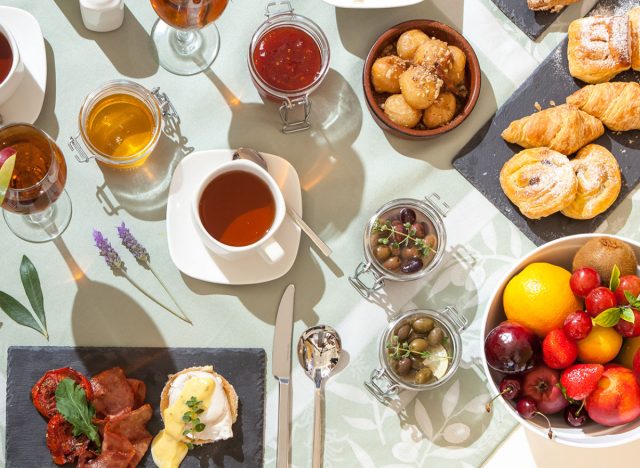
To live a longer, disease-free life, your body needs to maintain a balance between being able to form new blood vessels (which is critical for wound healing and restoring blood supply for treating cardiovascular diseases) and keeping that cellular growth in check—otherwise, you increase your risk of cancer and other diseases.
While the process of splitting and sprouting new blood vessels, known as angiogenesis, is completely natural, it can have a negative effect by feeding the growth of diseases, such as cancer, Alzheimer's disease, obesity, and diabetes-related vision loss. Dr. Li's mentor, the Harvard scientist Judah Folkman, came up with the idea that you could starve tumors by targeting the abnormal blood vessels that feed them. "The goal of an angio-preventive diet is to keep the body's angiogenesis defense system in a healthy state of balance," says Dr. Li.
In his book, Li says some of the most effective foods for enhancing your body's ability to starve cancer and maintain an angiogenesis balance are soy, black raspberries, tomatoes, tea, pomegranate, and even licorice, beer, and cheese. There's mounting evidence for the power of these foods, Li says. "People in Asia who consume lots of soy, vegetables, and tea have a significantly lower risk for developing breast and other cancers."
Eat more fish and flavonoids to regenerate stem cells
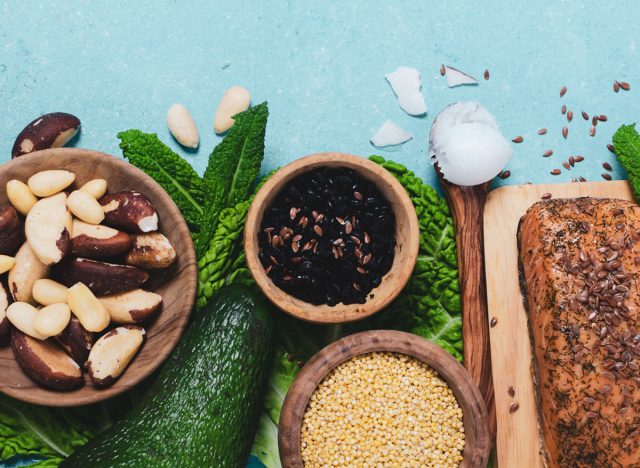
Stem cells reside throughout our bodies, in our organs, bone marrow, lungs, liver, and gut. Their job is to maintain, repair, and regenerate our tissues, and what we eat can affect their performance.
One of the most powerful regenerative foods is fatty fish, writes Li. He cites research from the University of Montreal demonstrating that a diet rich in fish oil increases the production of stem cells that are linked to better circulation in oxygen-deprived muscles. Other foods that spur regeneration include flavonoid-rich dark chocolate, black tea, beer, red wine, mangoes, and olive oil.
Load up on antioxidant-rich foods to protect your DNA
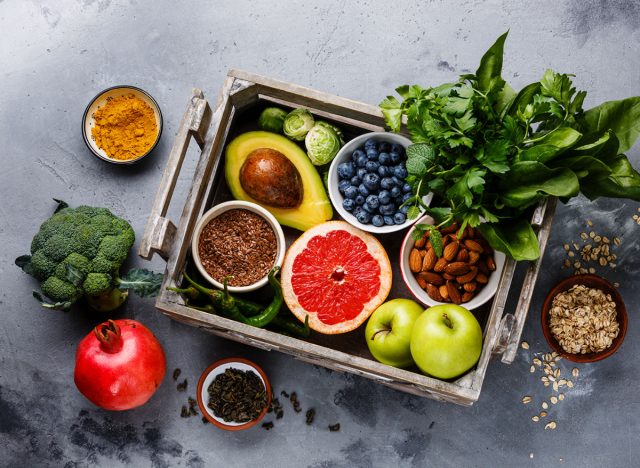
The genetic code of our DNA may be set in stone, but that doesn't mean it's immutable. Throughout our lifespans, our DNA may become damaged by environmental factors such as free radicals or by the natural aging process, which shortens the end caps of our chromosomes known as "telomeres." The good news is that "certain foods can prompt DNA to fix itself while some foods turn on helpful genes and turn off harmful ones," says Li.
To live a longer, healthier life, you're going to want to load up on the foods that repair and maintain the health of your DNA.
The foods that support robust DNA repair and slow cellular aging are those rich in nutrients with antioxidant properties like vitamins A, C, D, E, beta-carotene, lycopene, lutein, and selenium. To stock up, fill up on spinach, kale, and other leafy greens, carrots, broccoli, oranges, berries, red peppers, lentils, navy beans, eggs, sardines, almonds, flaxseeds, pumpkin seeds, coffee, tea, soy, and spices like turmeric.
Use anti-inflammatory foods to activate your immune defense
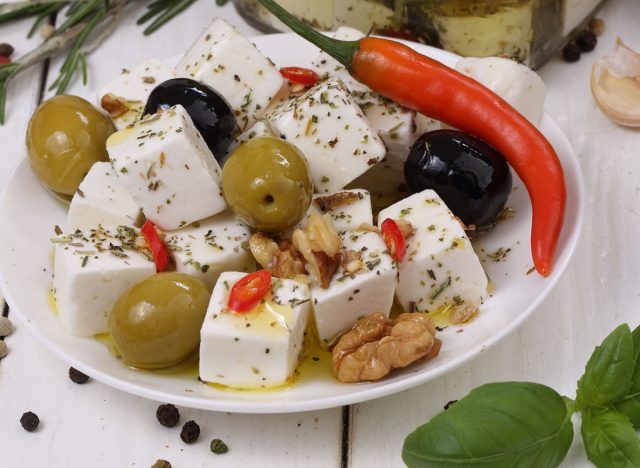
Every disease is somehow linked to your immune system in one way or another. In some cases, the immune response is weak, and it can't fight infections effectively. In other cases, the immune system kicks into chronic overdrive, causing inflammation and, often, damaging healthy tissue.
Eating the right foods regularly can both reduce inflammation and strengthen a compromised immune system, helping you stay healthier for longer. To boost your immune defense, eat anti-inflammatory foods like olive oil, cranberry juice, broccoli sprouts, concord grape juice, black raspberries, walnuts, licorice root, blueberries, and black raspberries, and chile peppers.
Add fermented foods to boost your microbiome
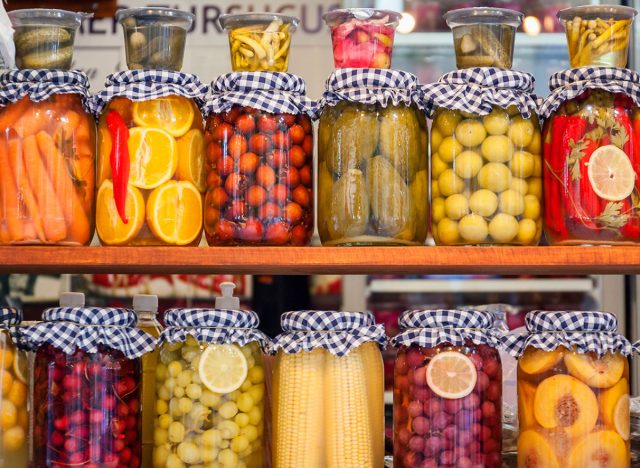
Another surprising way to support the body's disease-fighting immune system is by paying attention to the gut.
The health-supporting bacteria in our gut, known as our microbiome, play a significant role in controlling our immune system. To improve our inner ecosystem, it's important to both add microbiome-supporting foods to our diet as well as remove foods that disrupt the balance of a healthy microbiome, like refined sugars and artificial sweeteners.
Among the best beverages for a healthy balance are black, oolong, and green tea, which "can increase good bacteria and decrease bad bacteria." Other foods that benefit your gut: kiwifruit, sourdough, and pumpernickel bread, dark chocolate, fiber-rich beans, and fermented foods like kimchi, sauerkraut, yogurt, and kefir.
No comments:
Post a Comment